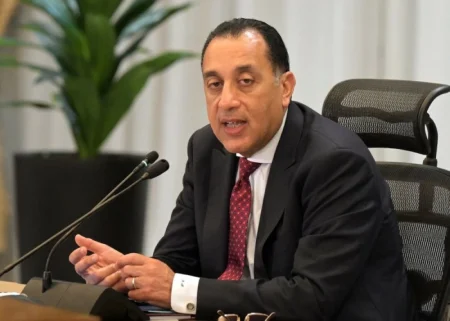أكد رئيس هيئة التأمين المهندس ناجي التميمي أنَّ سوق التأمين في المملكة سيدخل مرحلة انتقال نوعية تتضمن تطبيق نظام الأصول المالية (Capital Regime) بصورة تجريبية في عام 2026 بالتوازي مع النظام الحالي، على أن يتم التطبيق الكامل في يناير 2027، موضحًا أن هذا التحول سيمنح السوق قدرة أكبر على تطوير نماذج الاكتتاب، وتوسيع قدرات التحليل، ورفع الشفافية، وتعزيز جاذبية الاستثمار للمؤسسات المحلية والدولية.
وأشار التميمي إلى أن هيئة التأمين نفّذت عمليات محاكاة واختبارات وورش عمل مع شركات السوق لضمان انتقال سلس، إضافةً إلى أن مشروع «نظام التأمين الجديد» الذي تعمل الهيئة على صياغته ورفعه للجهات التشريعية، يمثّل محطة تشريعية مفصلية ستعزز استدامة التطوير القانوني والتنظيمي للسوق خلال السنوات القادمة.
جاء ذلك خلال مشاركة رئيس هيئة التأمين في جلسة حوارية رئيسية حملت عنوان «تحفيز تطوير القطاع – دروس عالمية وطموح محلّي»، ضمن فعاليات مؤتمر ومعرض التأمين العالمي.
تحولات تنظيمية
وشهدت الجلسة مشاركة الرئيس التنفيذي لهيئة الخدمات المالية في مالطا كينيث فاروجيا، وأدار الجلسة الدكتور كاي-أوي شانتس المؤسس المشارك والعضو المنتدب لشركة (Purpose for Insurance Ltd)، وتناولت الجلسة التحولات التنظيمية القادمة في صناعة التأمين، والتجارب الدولية في توسيع جاذبية الأسواق ورفع تنافسيتها.
من جهته، تناول كينيث فاروجيا التجارب الدولية في الانتقال بين الأطر التنظيمية، مؤكدًا أن المرونة التشريعية والتدرج في التطبيق عنصران حاسمان لضمان تحول إيجابي للسوق من نموذج إلى آخر.
نهج معتمد
وأوضح أن «النهج المعتمد على المخاطر» يمكّن الجهات التنظيمية من توجيه الرقابة نحو الجهات الأكثر تأثيرًا والأعلى خطورة أولًا، مع منح الشركات الأقصر وقتًا كافيًا لتكييف نماذجها التشغيلية.
واستعرض فاروجيا تجربة مالطا في تنظيم قطاع الأصول المالية الافتراضية، التي بدأت عام 2018 برؤية تنظيمية مبكرة، معتبرًا أن هذه التجربة منحت مالطا ميزة تنافسية لاحقًا، وأن هناك فرصًا قادمة لربط نماذج الترخيص في التأمين مع قطاع الأصول الرقمية مستقبلًا، رغم أن الاهتمام في هذا الربط لا يزال في مرحلة مبكرة.
مستقبل الأسواق
واتفق المتحدثون على أن مستقبل نمو الأسواق التأمينية يعتمد على مزيجٍ من 3 مكونات رئيسية: إطار تنظيمي أكثر نضجًا، وتطور تشريعي مواكب للتغيُّرات الاقتصادية، ورفع مستوى الابتكار التقني من خلال حلول البيانات والتقنيات الرقمية، كما أكدوا أن بناء الثقة -خاصة ثقة حمَلة وثائق التأمين- هو شرط أساسي لتطور أسواق التأمين عالية النمو، وأن التحول القادم في المملكة يعكس انتقالًا من أسواق تأمين تقليدية إلى أسواق تأمين ممكِّنة للنمو الاقتصادي الوطني.
يذكر أن مؤتمر ومعرض التأمين العالمي (ingate) يقام خلال الفترة من 10 إلى 12 نوفمبر الجاري، في قاعة ميادين الدرعية بالرياض، بتنظيم هيئة التأمين، وهو الحدث التأميني الأكبر من نوعه في المملكة، ويشارك فيه متحدثون من 150 دولة.
The Chairman of the Insurance Authority, Engineer Naji Al-Tamimi, confirmed that the insurance market in the Kingdom will enter a phase of qualitative transition that includes the experimental application of the Capital Regime in 2026 alongside the current system, with full implementation set for January 2027. He explained that this transformation will provide the market with greater capacity to develop underwriting models, expand analytical capabilities, enhance transparency, and improve the attractiveness of investment for local and international institutions.
Al-Tamimi pointed out that the Insurance Authority has conducted simulations, tests, and workshops with market companies to ensure a smooth transition. Additionally, the “New Insurance System” project that the authority is formulating and submitting to legislative bodies represents a pivotal legislative station that will enhance the sustainability of legal and regulatory development in the market over the coming years.
This was stated during the participation of the Chairman of the Insurance Authority in a main dialogue session titled “Stimulating Sector Development – Global Lessons and Local Ambition,” as part of the Global Insurance Conference and Exhibition.
Regulatory Transformations
The session witnessed the participation of Kenneth Farrugia, the CEO of the Financial Services Authority in Malta, and was moderated by Dr. Kai-Oui Shants, co-founder and managing director of Purpose for Insurance Ltd. The session addressed the upcoming regulatory transformations in the insurance industry and international experiences in expanding market attractiveness and enhancing competitiveness.
For his part, Kenneth Farrugia discussed international experiences in transitioning between regulatory frameworks, emphasizing that legislative flexibility and a gradual approach to implementation are crucial elements to ensure a positive market transformation from one model to another.
Adopted Approach
He explained that the “risk-based approach” enables regulatory authorities to direct oversight towards the most impactful and riskiest entities first, while allowing companies sufficient time to adapt their operational models.
Farrugia reviewed Malta’s experience in regulating the virtual financial assets sector, which began in 2018 with an early regulatory vision, considering that this experience later granted Malta a competitive advantage. He noted that there are upcoming opportunities to link licensing models in insurance with the digital assets sector in the future, although interest in this linkage is still in its early stages.
Future of Markets
The speakers agreed that the future growth of insurance markets depends on a mix of three main components: a more mature regulatory framework, legislative development that keeps pace with economic changes, and an increase in technological innovation through data solutions and digital technologies. They also emphasized that building trust—especially the trust of policyholders—is a prerequisite for the development of high-growth insurance markets, and that the upcoming transformation in the Kingdom reflects a shift from traditional insurance markets to insurance markets that enable national economic growth.
It is worth mentioning that the Global Insurance Conference and Exhibition (ingate) is taking place from November 10 to 12 this year at the Diriyah Muneera Hall in Riyadh, organized by the Insurance Authority. This is the largest insurance event of its kind in the Kingdom, featuring speakers from 150 countries.














